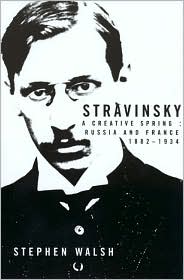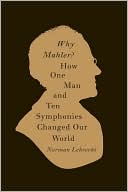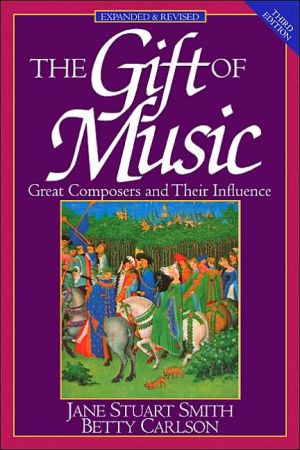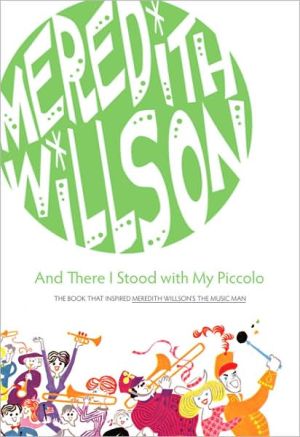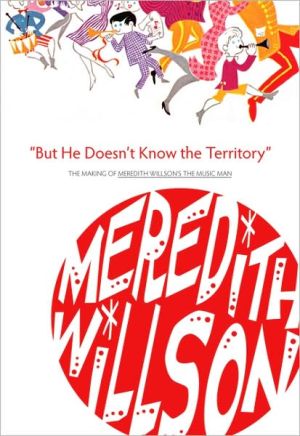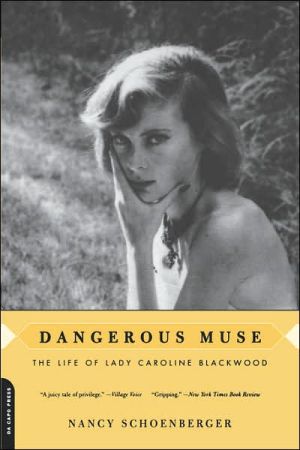Stravinsky: A Creative Spring: Russia and France, 1882-1934
Widely regarded as the greatest composer of the twentieth century, Igor Stravinsky was central to the development of modernism in art, yet no dependable biography of him exists. Previous studies have drawn too heavily from his own unreliable memoirs and conversations, and until now no biographer has possessed both the musical knowledge to evaluate his art and the linguistic proficiency needed to explore the documentary background of his life—a life whose span extended from tsarist Russia to...
Search in google:
Widely regarded as the greatest composer of the twentieth century, Igor Stravinsky was central to the development of modernism in art, yet no dependable biography of him exists. Previous studies have drawn too heavily from his own unreliable memoirs and conversations, and until now no biographer has possessed both the musical knowledge to evaluate his art and the linguistic proficiency needed to explore the documentary background of his life—a life whose span extended from tsarist Russia to Switzerland, France, and ultimately the United States.In this revealing volume, the first of two, Stephen Walsh follows Stravinsky from his birth in 1882 to 1934. He traces the composer's early Russian years, laying bare the complicated relationships within his family and showing how he first displayed his extraordinary talents. Stravinsky's brilliantly creative involvement with the Ballets Russes is illuminated by a sharp sense of the internal artistic politics that animated the group. Portraying Stravinsky's circumstances as an emigré in France trying to make his living as a conductor and pianist as well as a composer, Walsh reveals the true roots of his notorious obsession with money. He also describes the nature of his long affair with Vera Sudeykina.While always respecting Stravinsky's own insistence that life and art be kept distinct, Stravinsky makes clear precisely how the development of his music was connected to his life and to the intellectual environment in which he found himself. But at the same time it demonstrates the composer's remarkably pragmatic psychology, which led him to consider the welfare of his art to be of paramount importance, before which everything else had to give way. Walsh, long established as an expert on Stravinsky's music, has drawn upon a vast array of material, much of it unpublished or unavailable in English, to bring the man himself, in all his color and genius, to glowing life. Sunday Telegraph A work of extraordinary range and assurance. Based on a comprehensive knowledge of the sources (published and archival in every relevant language, infused with musical intelligence and written with an engaging mixture of human warmth and dry, epigrammatic skepticism.
For all Maria Romanovna's disapproval, Fyodor could point to quarterings no less impressive than his future wife's, even if he had a good deal less to show for it in material terms. The Stravinsky family, like the name, is Polish, a fact which needs to be stressed in view of recent and perfectly understandable attempts by Kiev scholars to claim Stravinsky as a Ukrainian of Cossack lineage. The so-called Soulima-Stravinskys are more accurately described as "Strawinscy Herbu Sulima," to adopt for the moment the old Polish spelling of the two names: that is, the Strawinscy family with the Sulima coat-of-arms. This simply means, for our purposes, that this branch of the Strawinscys claimed descent from the more ancient -- probably German -- house of Sulima. Stefan Strawinski traced the family tree back to the late sixteenth century, when the Strawinscys held high state office, in a kingdom where there were no hereditary titles and power was symbolized by honorific titles associated with purely ceremonial duties. For instance, there was a Strawinsky Kasztelan (castellan) of Minsk and Vitebsk, and another Strawinscy Kasztelan of Brest, who later became Voyevoda -- that is, Governor -- of the province of Minsk. These posts brought with them seats in the Polish Senate and royal lieutenancies; in other words, their holders were ceremonial grandees like modern British lords lieutenant, and inevitably they were large landowners. Gradually the family fortunes declined. In the next generation (the mid-seventeenth century), Strawinscys held honorary stewardships and magistracies; one Krzysztof Strawinscy was czesnik oszmianski -- cupbearer at Oshmyany, a town between Vilnius and Minsk. Butthese were altogether more provincial appointments, conferring purely local authority. Of Fyodor's great-great-grandfather Stanislaw Strawinscy (who married in 1748) we otherwise know only that he inherited a village called Szokinie, in the Strava region, but, instead of leaving it to his eldest son, sold it to a nephew and, presumably, spent the money. A mere three generations later Fyodor's father, Ignaty Ignatyevich (1809-93), is no longer a freeholder at all, but a leaseholder and a working estate manager and agronomist, in the village of Noviy Dvor near Gomel in the southeastern corner of what is today Belarus, but was then in the Minsk province of tsarist Russia.\ \ While the genealogy depicts a gradual decay in the social and economic standing of the Szokinie Stravinskys (to revert, now, to a transliterated Russian spelling), the geography reveals a parallel southeasterly drift, but always within the borders of the ancient Grand Duchy of Lithuania -- the eastern half of the pre-Napoleonic kingdom of Poland. To put this another way, Stravinsky territory was, very roughly, modern Belarus: that is, White Russian-speaking and Orthodox, as opposed to Polish and Roman Catholic. Nevertheless, according to the composer, Fyodor's father was still Catholic, while Fyodor was baptized Orthodox only because his Russian mother, Alexandra Ivanovna Skorokhodova (1817-98), was Orthodox, and under Imperial Russian law -- relevant in the former Polish eastern territories after the partition of 1793 -- the children of a mixed marriage had to be Orthodox. We can add, speculatively, that in wedding the daughter of a Russian Orthodox small-landowner in the remote southeast of those territories, Ignaty Stravinsky was marrying well beneath himself and his ancestry, but also that, in turning his children into Russians, he was opening to them new horizons and a new culture. Fyodor's somewhat rootless success as an opera singer might not have been possible without his first being declasse and depolonized.\ \ Ignaty Ignatyevich, Fyodor's father, seems in any case not to have taken kindly to his Orthodox wife, nor she to him. According to the composer, Ignaty was a womanizer; and according to the composer's niece Xenia, he was a bad businessman and a failure at estate management. At all events the couple separated and soon divorced. Perhaps this was even as early as the 1840s, since Fyodor Stravinsky, who was born in 1843, was brought up in the house of his maternal grandfather at Bragin and later recalled sitting in the window of this house with his nyanya, watching the Cossacks ride home from the Hungarian war of 1848-49. Ignaty went off to Poltava, in the Ukraine, where he again perhaps failed as an estate manager, since he ended his long life in Tiflis, in the house of his daughter Olga Dimchevsky.\ \ There is a bizarre footnote to this tale of Fyodor's ancestry. The maternal grandfather, Ivan Ivanovich Skorokhodov (1767-1879), is none other than the "old gentleman" of Stravinsky's Dialogues, who died at the age of 111 "as a result of a fall while trying to scale the garden fence on his way to a rendezvous." This irresistible picture is both too good and too obviously apocryphal to be worth denying. But Skorokhodov seems to have been no philanderer like his son-in-law, but a sweet old man who put a roof over his daughter and her children and was still worrying about his grandchildren's welfare after they were married. A gentle, uncomplicated letter survives from him to Fyodor Stravinsky, among other things congratulating Fyodor's son Roman on his second birthday. It is an awe-inspiring thought that if Roman had been Igor, or if Skorokhodov had survived three more years, composer and great-grandfather would between them have spanned two centuries of continuous life.
\ Wilfrid MellersOne of the finest general studies of the composer. \ —Times Literary Supplement\ \ \ \ \ Lawson TaitteWalsh's is a useful and honorable portrait. It leaves you wanting to listen again and again to every piece. \ —New York Times Book Review\ \ \ Sunday TelegraphA work of extraordinary range and assurance. Based on a comprehensive knowledge of the sources (published and archival in every relevant language, infused with musical intelligence and written with an engaging mixture of human warmth and dry, epigrammatic skepticism.\ \ \ \ \ Patrick J. SmithWhat has heretofore been lacking in the large literature on Stravinsky has been a thoroughgoing biographical 'life.' . . . Walsh has provided the first volume of two that effectively close this gap. Densely packed with data, Stravinsky, A Creative Spring traces on an almost week-to-week basis the composer's life, detailing the events, thedisputes, the journeys and the homes. \ —Washington Post Book World\ \ \ \ \ Library JournalWalsh, a British musicologist who has written extensively on Stravinsky and his works, has produced the first of a massive two-part biography of the century's greatest composer. The first part takes the reader in a comprehensive chronology from Stravinsky's birth to the end of his Paris years. In the process, Walsh carefully and exhaustively lays bare Stravinsky's genealogy and convincingly details his complex relationships with family, friends, and fellow composers. Drawing extensively on hitherto unexamined primary sources as well as on such indispensable secondary sources as Robert Craft's writings and Richard Taruskin's recent groundbreaking tome, Stravinsky and the Russian Tradition, Walsh performs this feat with admirable clarity and discretion. While there are no musical examples, nor any semblance of analysis, there is nonetheless a great deal of illuminating commentary on each work written during this time period. This is an important source for Stravinsky scholars and an enjoyable read for the casual reader. Highly recommended for all collections.--Larry A. Lipkis, Moravian Coll., Bethlehem, PA Copyright 1999 Cahners Business Information.\ \ \ \ \ Lawson TaitteStephen Walsh's new account of the first half of Stravinsky's life judiciously navigates between two mountains of often conflicting information...Walsh's is a useful and honorable portrait. It leaves you wanting to listen again and again to every piece, from the tiny shards of the ''Pribaoutki'' to the curlicued grandeur of ''Oedipus Rex.'' \ —The New York Times Book Review\ \
